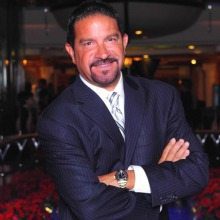
Goss: When I came into SIGNAL Corporation in 1996, it was a really tough time in government contracting. We had recently come out of a government shutdown. Funds were tight. Companies in the ‘90s were coming off of being public as opposed to post-9/11 when the government had some good vibe and momentum coming back and companies were going public once again. I really had to stretch myself then and decide on a career path because I had an IT and accounting background.
At SIGNAL, I started out as a vice president of accounting and very quickly grew to become the CFO and CIO and grew a material business within SIGNAL. When I started, they were running at $30-some million, and I ended up doing the deal to sell the company to VERIDIAN for $227 million.
It was a lot of hours. My first-born child, my daughter Kayla, was born the week before I started at SIGNAL. I was living in Germantown, Maryland, commuting to Fairfax, Virginia, and I had to do a lot of things. When you grow a company organically in six years or so from that size to $260-plus million, there are a lot of things you have to do to stretch yourself in your career.
I implemented CostPoint. I personally developed a package called PM Reports which today is called DataCall and is sold through a number of government clients including companies like Novetta and Serco. I ran an accounting department, I grew a whole business outsourcing and implementing financial systems and reporting systems. Back in ‘96 and ‘97, I was one of the first people to take Deltek’s electronic timecard system and make it work over the internet remotely. Back in ‘97, we were one of the first companies to have internet reporting available to all of our managers throughout the whole company. They could get real-time data on their employees and their programs through systems I had developed. That was basically three hats I wore at the company let alone developing software, and I really had to stretch myself during that time.

